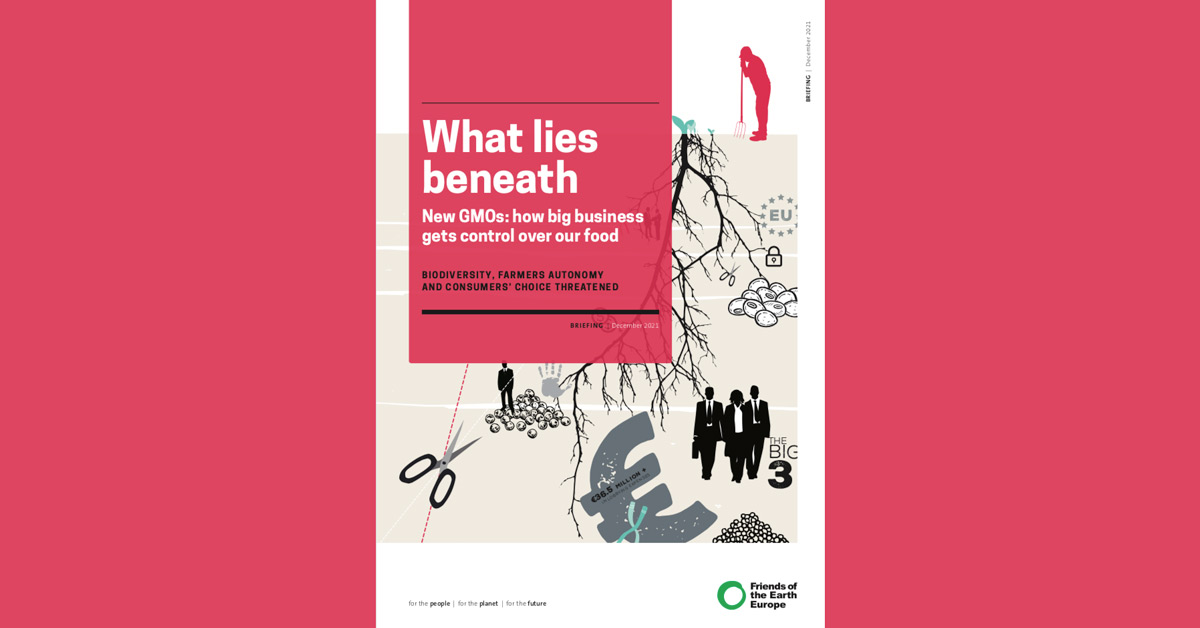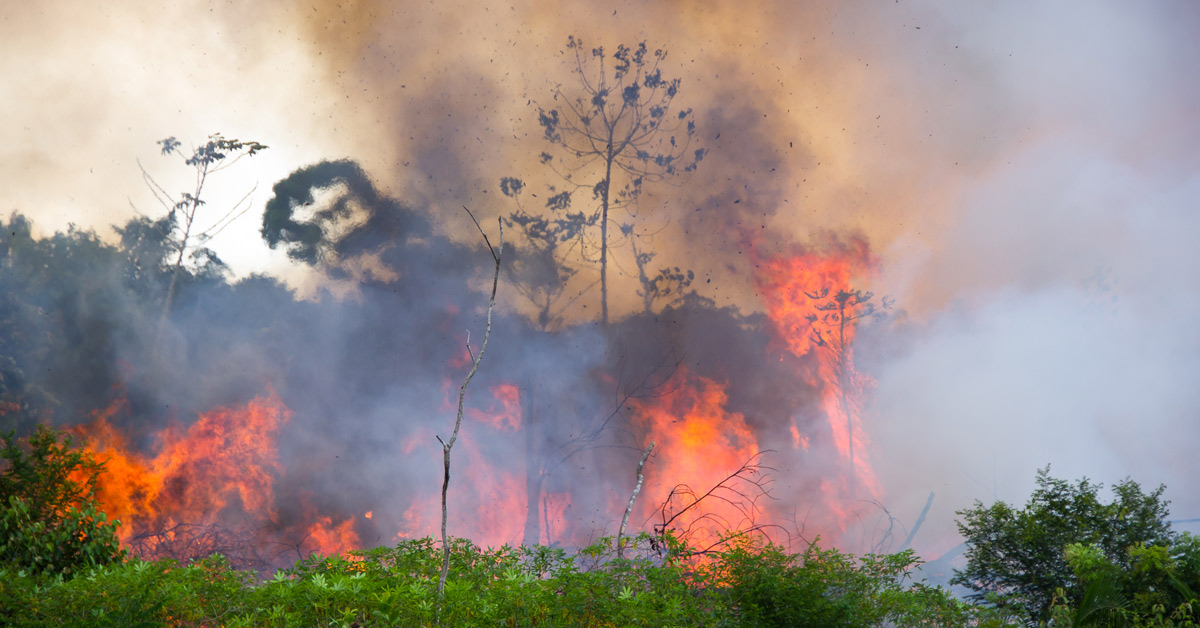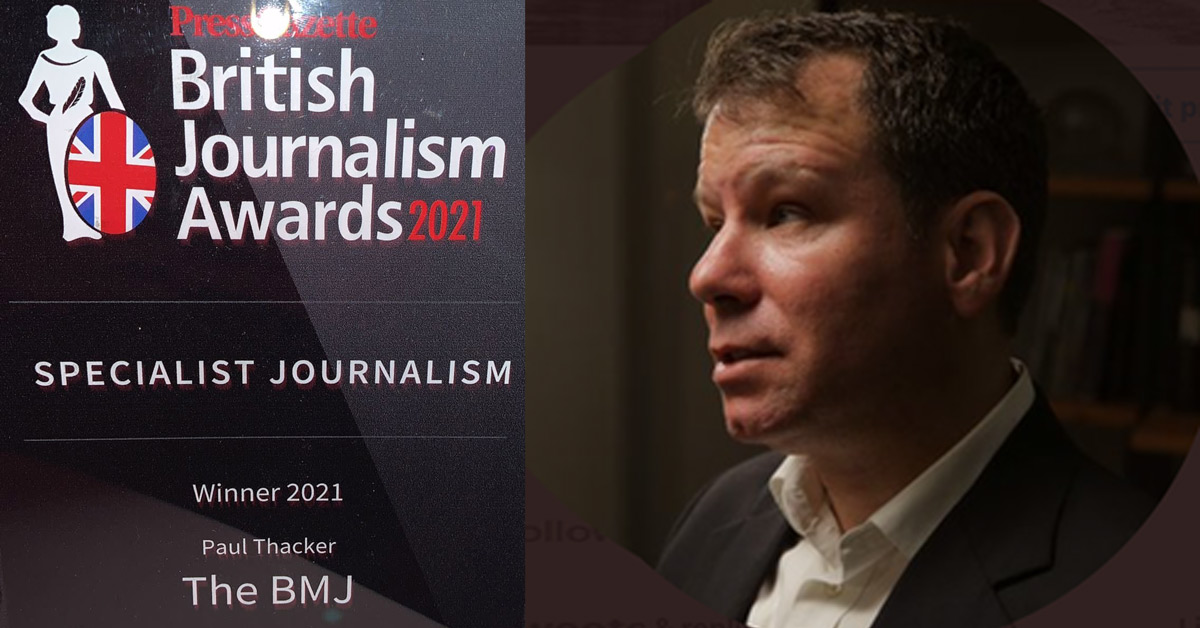LOBBYWATCH
Agbiotech corporations are gaining control over our food through lobby power and patent cartels
Friends of the Earth Europe has published an important new investigation into what lies beneath the current drive for deregulation of new GMOs in the European Union. Big agribusiness and biotech corporations are currently pushing for the European Commission to remove any labelling and safety checks for new genomic techniques, like gene editing. In addition to keeping farmers and consumers in the dark as to what they are growing and eating, it would also help them minimise their costs. Since the beginning of their lobbying efforts, in 2018, top agribusiness and biotech corporations:
* spent at least €36,599,932 lobbying the European Union.
* had 182 meetings with European Commissioners, their cabinets and director generals. That’s more than one meeting a week.
The same big corporations producing GMOs and toxic pesticides are also the ones pushing for patents on new GMOs to include all conventionally bred plants with similar genetic characteristics, in a move to gain unprecedented control over both plants and seeds.
Agribusiness groups lobbying to water down the EU’s sustainable farming targets
Agrochemical and pesticide giants like Bayer, BASF, and Corteva are pushing for weaker action on harmful chemicals and climate goals. These companies have made significant efforts to lobby the EU and its decision-makers in the wake of announcements about the Green Deal and other policies. Others that have been active in pushing for the EU to continue to allow the use of certain controversial chemicals, include CropLife Europe and the Glyphosate Renewal Group.
Groups tell UN food agency to ditch “toxic alliance” with pesticide association
A global coalition of food justice advocates have urged the United Nations Food and Agriculture Organization to sever ties with CropLife International, a trade association representing agrochemical corporations. In a letter addressed to FAO Director-General Qu Dongyu and attached to a petition signed by more than 187,300 people from 107 countries, nearly a dozen groups wrote that “CropLife's sole purpose is to advocate for use of its members' products.”
Insects in nature reserves are contaminated with pesticide cocktails
A new study from Germany shows that insects on the nature reserves that showed a 76% decline in insect biomass over 26 years are contaminated with a cocktails of pesticides. Biology professor Dave Goulson comments on Twitter that the finding is worrying for the concept of conserving nature on “island” nature reserves.
Round Table on Responsible Soy has failed to stop deforestation – WWF Netherlands
WWF Netherlands has stated that it has lost confidence in the ability of the Round Table on Responsible Soy (RTRS) to stop deforestation. The admission comes 16 years after WWF International launched this agribusiness-dominated forum to make soy production more environmentally and socially responsible. In particular, the RTRS certification programme was supposed to ensure that soy certified under its label was produced without deforestation. But WWF Netherlands told the Dutch TV documentary series Zembla: “We have seen that this certification has not worked to combat deforestation.” GMWatch and other NGOs warned as long ago as 2009 that the RTRS was little more than a greenwashing exercise that would perpetuate environmental and public health abuses.
COVID-19
Investigative journalist Paul Thacker wins prestigious award for “expertly researched” articles
The investigative journalist Paul D. Thacker has won a prestigious British Journalism Award for a series of articles he wrote in the BMJ, one of the world’s top general medical journals, exposing the lack of transparency among experts advising the UK and US governments on COVID policy and practice. GMWatch readers will know Thacker’s work primarily from his pieces on pro-GMO activists. During the last year, he’s also begun reporting heavily on another topic of interest to many GMWatch readers – the distortions in the media’s coverage of the lab leak hypothesis on SARS-CoV-2.
Scientists believed COVID leaked from Wuhan lab - but feared debate could hurt science and “international harmony”
Leading British and US scientists thought it was likely that COVID accidentally leaked from a laboratory but were concerned that further debate would harm science and relations with China, emails show. An email from Sir Jeremy Farrar, director of the Wellcome Trust, in February 2020 said “a likely explanation” was that COVID had rapidly evolved from a SARS-like virus inside human tissue in a low-security lab. The email, to Dr Anthony Fauci and Dr Francis Collins of the US National Institutes of Health, went on to say that such evolution may have “accidentally created a virus primed for rapid transmission between humans”. But a leading scientist, Dr Ron Fouchier, told Sir Jeremy that “further debate would do unnecessary harm to science in general and science in China in particular”. Dr Collins, the former director of the US National Institutes of Health, warned it could damage “international harmony”. But in an excellent video report, journalist Ryan Grim comments, "They talk about international harmony but I think what they mean underneath that is the harmony of their scientific research funding flows”. Dr Alina Chan has written a Twitter commentary on these events.
Wuhan lab leak "more likely" origin of COVID-19, says researcher
A Canadian molecular biologist has told cross-party members of Parliament (MPs) on the UK House of Commons Science and Technology Committee that a leak from a laboratory in Wuhan region of China is now the “more likely” origin of the COVID-19 global pandemic. Dr Alina Chan, specialising in gene therapy and cell engineering and co-author of Viral: The Search for the Origin of COVID-19, told the Parliament panel's evidence session on scientific research that the pandemic was being caused by the unique feature of the coronavirus called “furin cleavage site”, which has been linked to the Wuhan Institute of Virology. Asked by the panel about the probability of a lab leak as the origin of the pandemic, Chan said a “lab origin is more likely than natural origin at this point”.
Documents from the National Institutes of Health call into question articles by science writers at Nature, Science, and the New York Times
Last autumn, science writers at Nature, Science, and the New York Times wrote articles arguing that viruses found in Laos, Southeast Asia – and closely related to the SARS-CoV-2 virus – added further evidence that the COVID-19 pandemic could not have started from a lab leak in Wuhan, China. Unfortunately, a batch of documents released in November 2021 from the US National Institutes of Health point to the Wuhan Institute of Virology as a possible source of these viruses found in Laos. According to those emails, researchers with the nonprofit EcoHealth Alliance apparently were collecting viruses in Laos since around 2016 and shipping them to… the Wuhan Institute of Virology.
Why do people not “trust the science”? Because scientists are not always trustworthy
Emails show that researchers orchestrated an article to denigrate the Wuhan lab leak theory of COVID origins as a "conspiracy”. Journalist Paul D. Thacker asks whether science publisher Taylor and Francis will retract an unethical, secretly edited article that appears to have skated past peer review.
EcoHealth Alliance wanted to block disclosure of COVID-19-relevant virus data from China
Emails newly obtained by US Right to Know reveal that EcoHealth Alliance president Peter Daszak opposed the public release of COVID-19-related virus sequence data gathered from China as part of the US government-funded PREDICT “virus hunting” program that identifies and tracks unknown viruses.
Revelations on Lancet editor who published letter slamming COVID lab leak theory as "conspiracy"
The editor of one of the world's most prestigious medical journals has admitted it took more than a year to declare the conflict of interests of a scientist who denounced the COVID lab leak theory and called anyone who questioned the official Chinese narrative a conspiracy theorist. Dr Richard Horton, editor of The Lancet, said it took 16 months to publish an official conflict of interest statement in which he revealed Peter Daszak had links to the Wuhan laboratory at the centre of the spillover theory. Daszak organised the letter in February 2020, co-signed by 26 other leading researchers which condemned "conspiracy theories" that COVID did not arise naturally.


